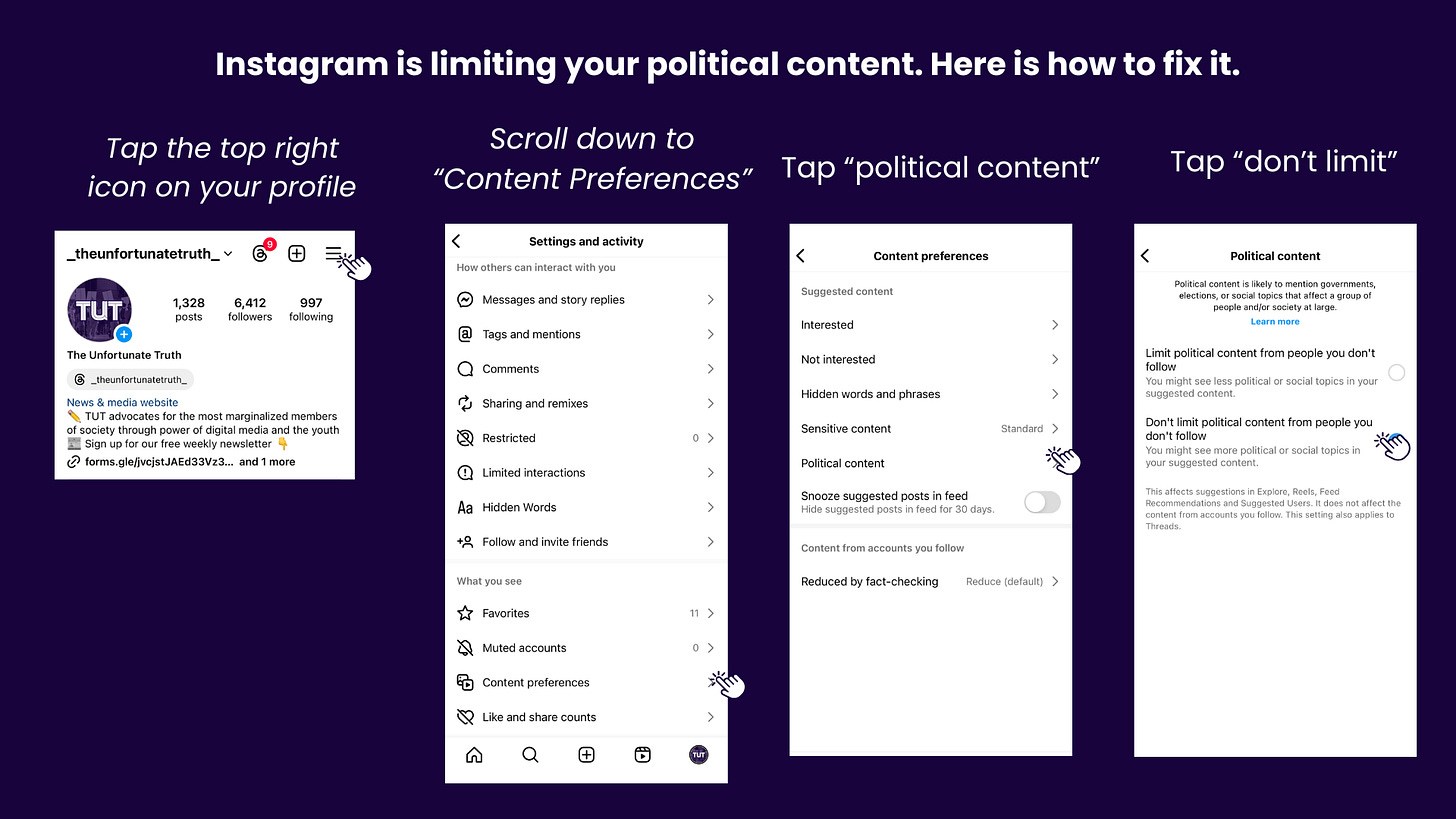Are you seeing less political content on your feed?
Instagram is officially limiting political content. Here is what that means for you and what you can do to keep seeing vital news on your feed.
Instagram is changing its algorithm so users will see limited political content unless they manually change it. Its parent company, Meta, said the reason for this change is to make its platforms “a great experience for everybody.” The social media giant defines political content as "potentially related to things like laws, elections, or social topics,” according to a Meta official who spoke with CNN. Before this change, Meta also curbed other forms of problematic content, such as “sensitive” topics, including depictions of violence and sexually suggestive material.
Although users may now see more cute dog videos, the consequences of Meta’s actions to the truth are deadly. Americans now, especially the youth, get their news from social media platforms and critics argue Meta's actions hinder the ability to receive vital news stories or information that is not trending on the internet—especially during a war in the Middle East and upcoming global elections.
A report published in December by the Human Rights Watch found that Meta’s content moderation policies have increasingly “silenced voices in support of Palestine.” In addition, an investigation released last month by The Markup, a tech news outlet, found that since the outbreak of the Israel-Hamas war, Instagram has “heavily demoted nongraphic images of war, deleted captions and hid comments without notification, suppressed hashtags, and limited users’ ability to appeal moderation decisions.”
Most famously, Meta received backlash for banning the account of Motaz Azaiza—a Palestinian photojournalist who was on the ground filming the destruction of his home and people—for posting “sensitive” content.
“Meta’s censorship of content in support of Palestine adds insult to injury at a time of unspeakable atrocities and repression already stifling Palestinians’ expression,” said Deborah Brown, the Human Rights Watch’s acting associate technology and human rights director. “Social media is an essential platform for people to bear witness and speak out against abuses while Meta’s censorship is furthering the erasure of Palestinians’ suffering.”
Meta’s content moderation comes amidst the U.S. House passing a bill that would ban TikTok unless its owners sell their stake to a non-Chinese company within five months of the bill’s passage, which is now up to the Senate. Although its path is unclear, it reflects a growing change in lawmakers' and tech giants’ approach to how social media content should reach and interact with Americans.
These consequences hit home for us at TUT as a social media-based outlet. Despite creating reliable, fact-checked news, our content from the war on Gaza is severely limited in its reach. This is why creating this newsletter is so important. It allows us to keep our content free from the bonds of algorithms and get you stories that matter.
But, unlike most of the problems we cover, there is something you can do about it—trick the algorithm by sharing more political content, saving that content, and manually changing your Instagram settings.
We firmly believe that social media, if used right, can be a beacon of change for the betterment of society—or—at least it can be a place to look at memes and cute dog videos. But we argue the latter is more important.
Written by Rahim Jessani, founder of The Unfortunate Truth



